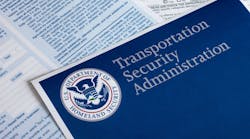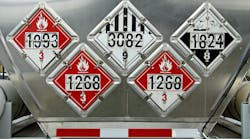In mid-December, the Transportation Security Administration (TSA) proposed new surface transportation security regulations that would have provided another burdensome layer of rules without any corresponding improvement in security.
TSA is proposing to regulate surface transportation companies’ security/vulnerability assessments and their training programs. However, TSA's plans to regulate surface transportation security do not include trucking, because previous NTTC advocacy efforts have already demonstrated that the trucking industry is already sufficiently regulated from a security standpoint, according to Boyd Stephenson, National Tank Truck Carriers senior vice-president of government affairs.
TSA is proposing these regulations in response to a congressional command contained in the Implementing Recommendations of the 9/11 Commission Act of 2007 to improve surface transportation security. When congress was debating that act, NTTC staff were actively educating members of Congress and their staffs about the bevy of security planning and training regulations already in place in the trucking industry.
Most importantly, NTTC staff and other industry association allies were able to point to programs such as the background check required for a Hazardous Materials Endorsement and the security plans for motor carriers transporting security-sensitive hazardous materials required by the Pipeline & Hazardous Materials Safety Administration. These programs are comprehensive and already effective in encouraging trucking companies to develop robust security programs.
Because of these educational efforts, congress specifically exempted freight trucking from its definition of surface transportation. Accordingly, TSA’s proposals will encompass the freight rail industry, the passenger rail industry, transit systems (bus and subway), and over-the-road buses. Trucking will not be affected.
“TSA has taken steps to develop voluntary security assessment and training programs for the trucking industry, but it cannot mandate these programs for the trucking arena,” Stephenson said. “NTTC and other associations’ advocacy efforts have more than ably demonstrated how effective are already existing security regulations operate. Accordingly, Congress has exempted us from what are likely to be onerous and duplicative programs.”








